Since its inception in 2018, the annual London Trans+ Pride has become a focal event in the calendar of trans British life. This day allows us to gather, network, vent and dream, especially for those who celebrate our transness and politically advocate for ourselves. It is a prefigurative space in which hope dares.
In 2023, the organisers (a grassroots community group) claimed to have gathered 35,000 people; in 2024, they spoke of 55,000+. While we cannot corroborate these exact numbers, it is undoubtedly true that attending Anti*Capitalist Resistance (A*CR) members felt the size of the event increased considerably.
Tenderness and Rage
The size was reflected by the three hours it took some of us to complete the march, a walk characterised by defiance and love, fantastically creative clothing, banners, and placards, and an open acceptance of humanity in its myriad appearances and forms of flourishing. People would greet one another with hugs and kisses; dancing, music, and chants shifted between registers of humour, tenderness, and just rage.
The mood was jubilant, queer, and centred on forms of solidarity and qualitative intersectionality. Key and oft repeated messages were in defence of trans youth/kids and in defiance of those who disrespect trans people at whatever level.
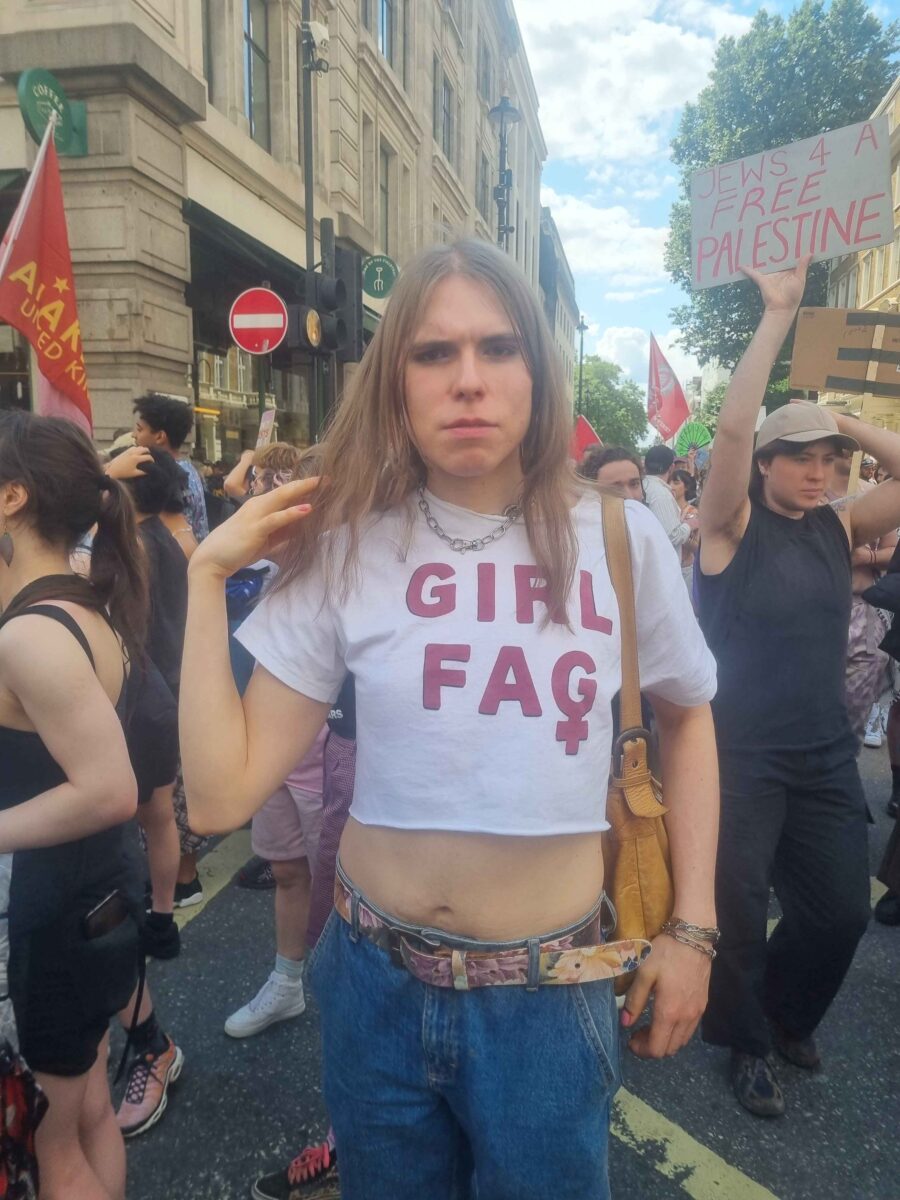

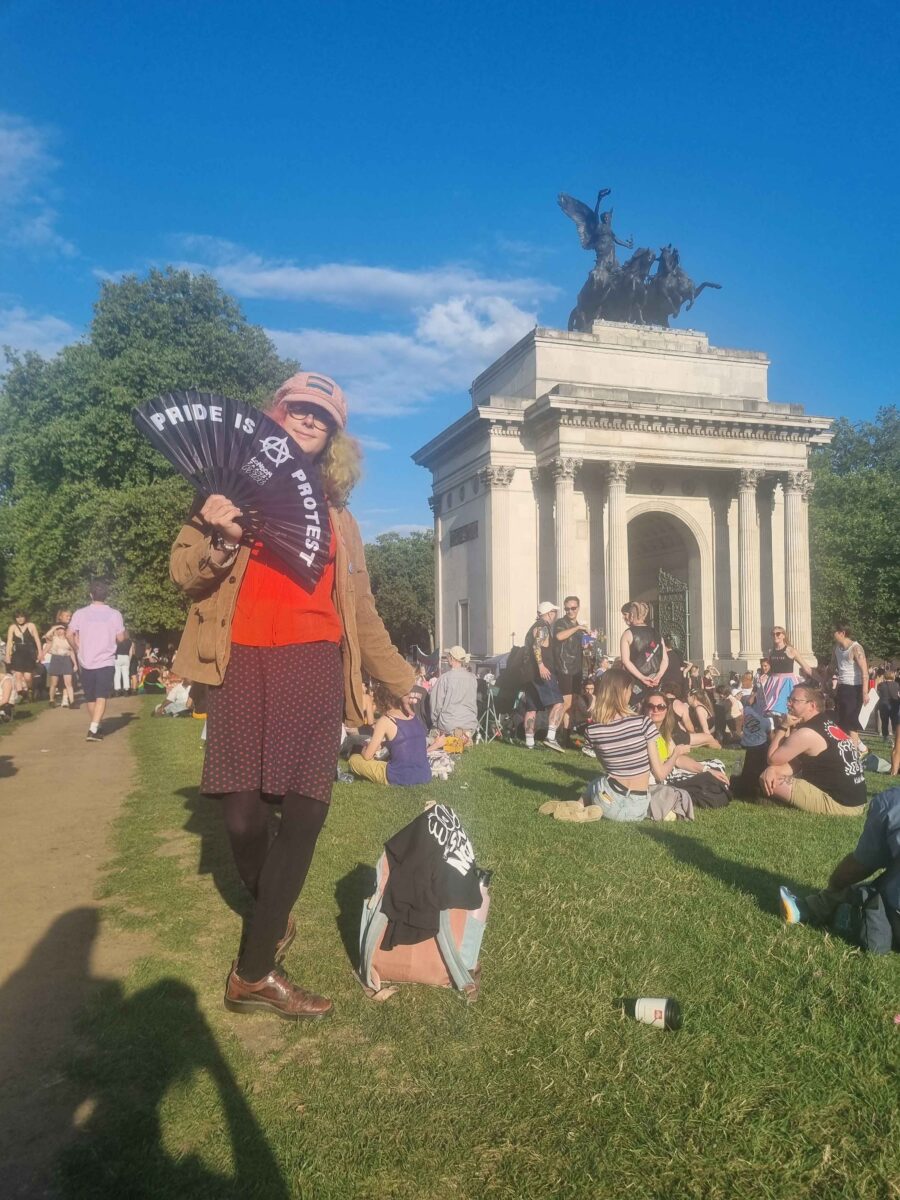
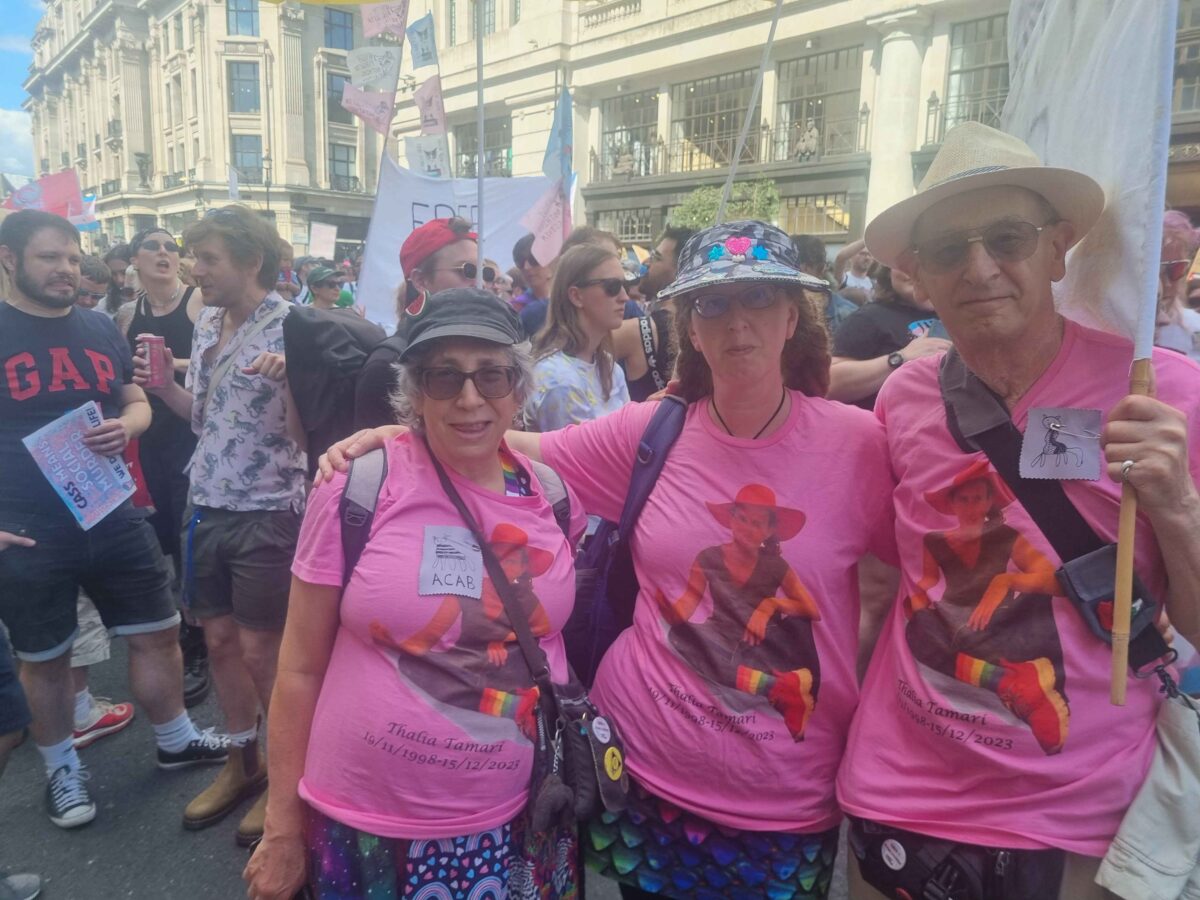
The disabled people contingent was at the forefront, and numerous other blocks highlighted the ongoing genocidal war in Gaza. Nor was there a firm line between masc, fem and nonbinary presences, but a generalised recognition that for all our different experiences, we share a single oppression.
A*CR members saw a group of young, queer people express particular enthusiasm for a Lesbians & Gays Support the Miners banner—a wholesome, welcome moment that showcased how queer history is a living current in the struggle. This sense of continuity and respect for strategies builds deeper links between fightbacks against one overarching oppressive system and points the way, however dimly, to what a victory for trans humanity might look like.
In the same spirit, there was a considerably stronger trade union turnout, and real effort was made by UNISON, PCS, BECTU, UNITE, NEU, Prospect, and others. As A*CR has long observed, without these broader links to the labour movement, the situation of a tiny minority beset by all sides is desperate. If such backing becomes sufficiently robust, a trans rights footing (and a trans liberation movement) again appears possible.
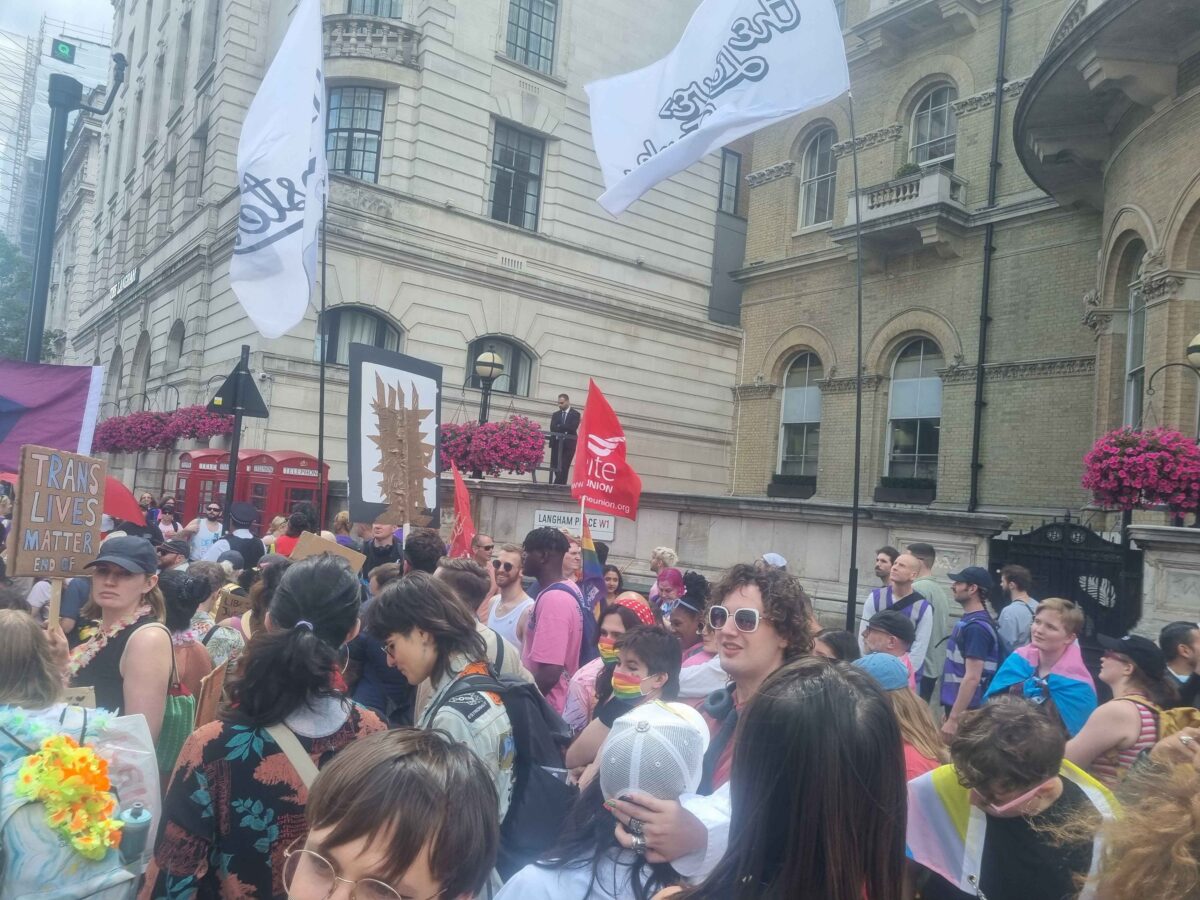
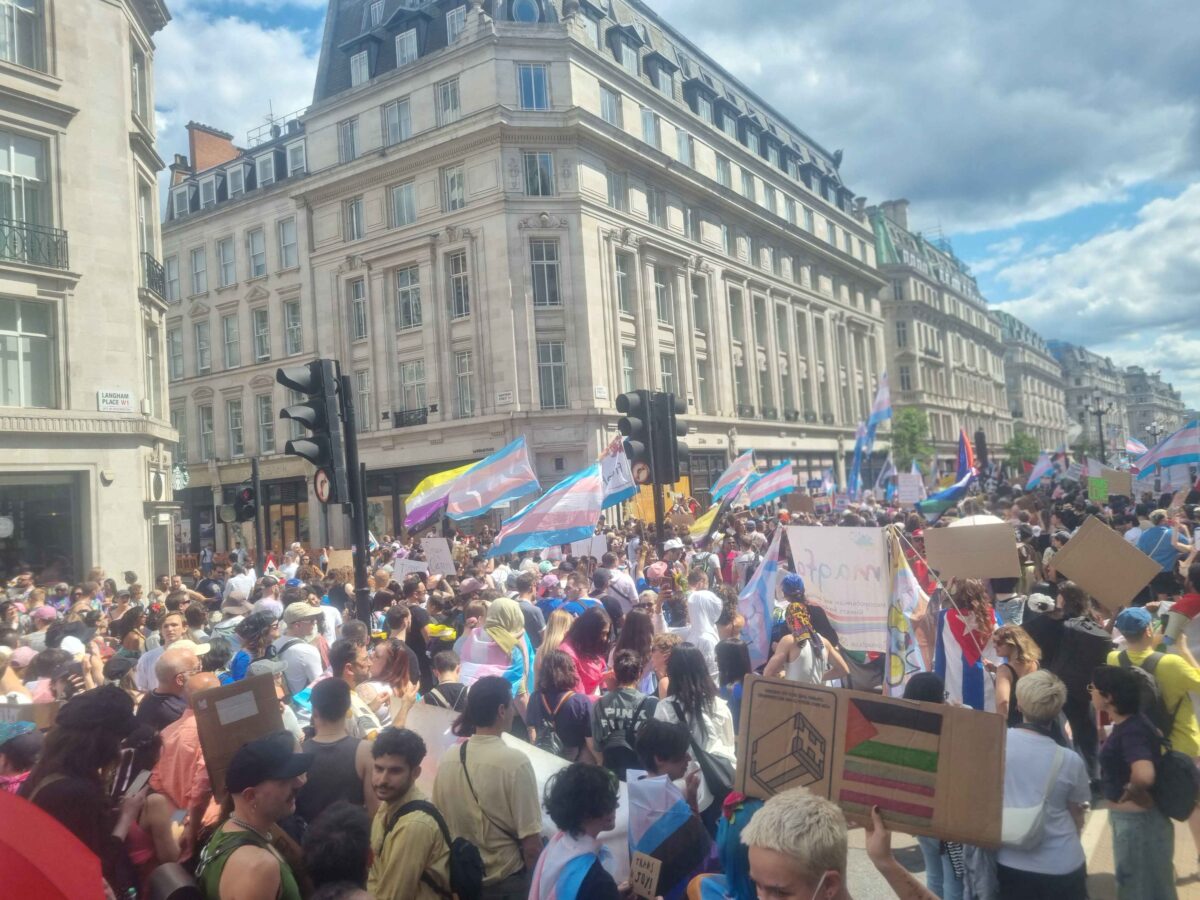
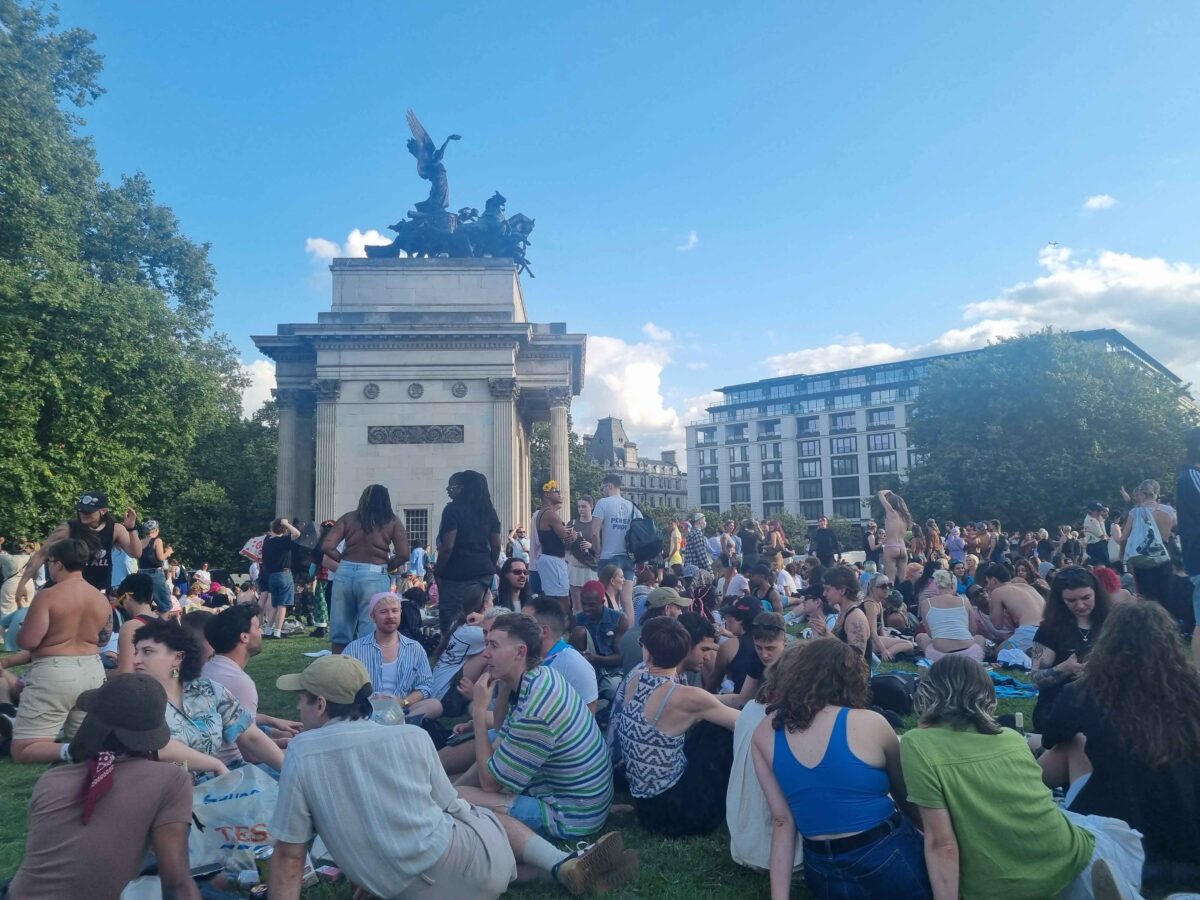
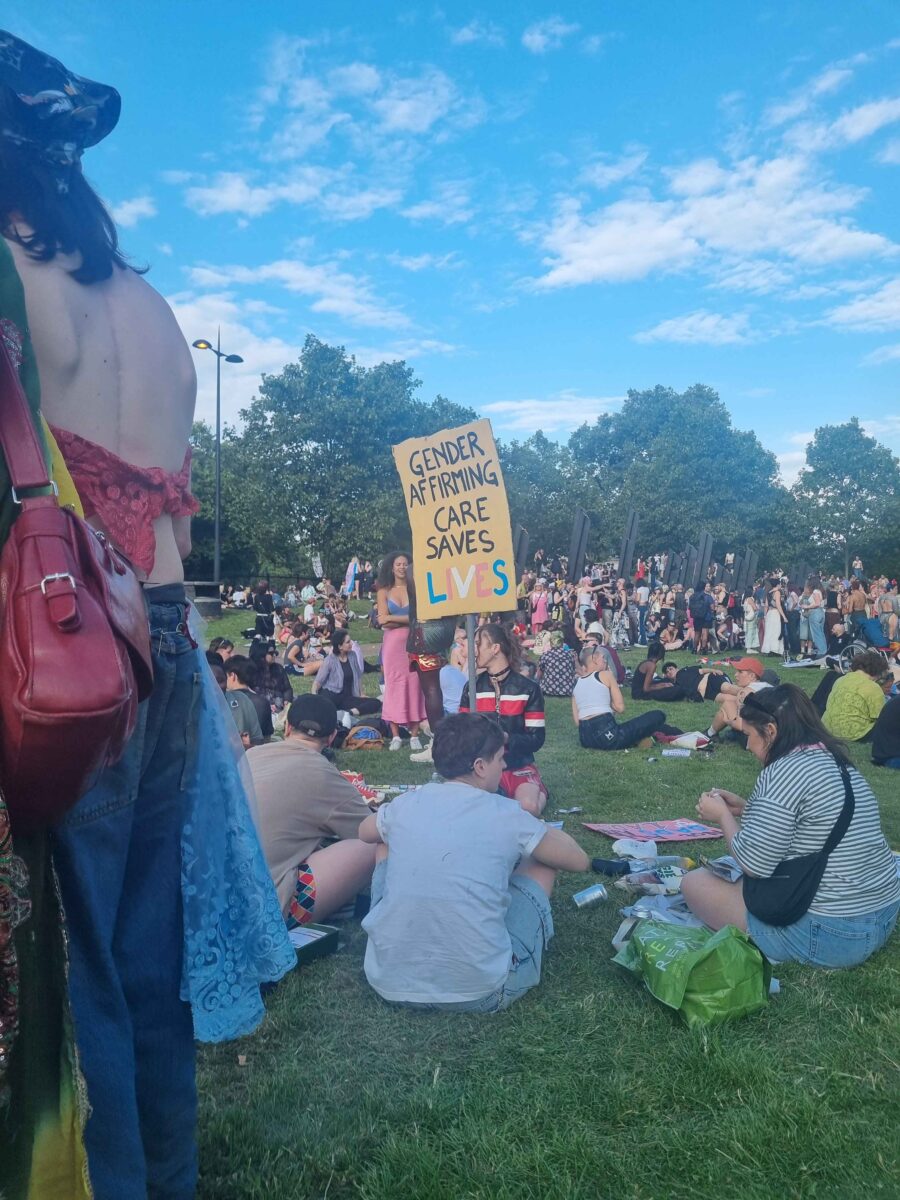
The situation is broadly grim, however. Discrimination, including in work, is endemic and being trans exerts a very real downward pull on class mobility, assuring that the community as a whole is more fractured, impoverished and focused on day-to-day survival than aspirations of a better society and world. This is compounded by the 186% increase in hate crimes against us in half a decade, which is only the reported rate during a period in which the community has a well-earned distrust of the police.
“The situation is broadly grim, however. Discrimination, including in work, is endemic and being trans exerts a very real downward pull on class mobility, assuring that the community as a whole is more fractured, impoverished and focused on day-to-day survival than aspirations of a better society and world.”
The New Section 28 bans on schools teaching about trans existence and acknowledging or protecting trans students remain integrated into the Labour Party government policy as a legacy of Tory rule. This effectively creates a hostile environment in Britain’s teaching institutions for trans children that denies their lives and dignity.
Since the anti-trans hack job that was the Cass Review did its interim (2022) and then final report (2024), youth trans care has simply ceased altogether. This means medically obstructing and even coercively detranistioning under 18 years olds has become official government policy, creating a new layer of institutionalised conversion therapy that makes a mockery of all promises to ban the abusive practice.
During a period of massive waiting times (five years or more) for inadequate and widely hated Gender Identity Clinic services, the Royal College of General Practitioners is now also advising GPs against providing vital bridging prescriptions and shared care agreements—effectively forcing most transitioning adults into DIY (do it yourself) alternatives to receive critical care. (A*CR will publish more on trans healthcare soon.)
I am a nonbinary trans woman who refuses to “pass” (i.e. hide my transness in public, however much I understand the practice as a form of harm reduction). I demand healthcare access and social support. From that position, I can personally testify to the lived experience of the trans social crisis.
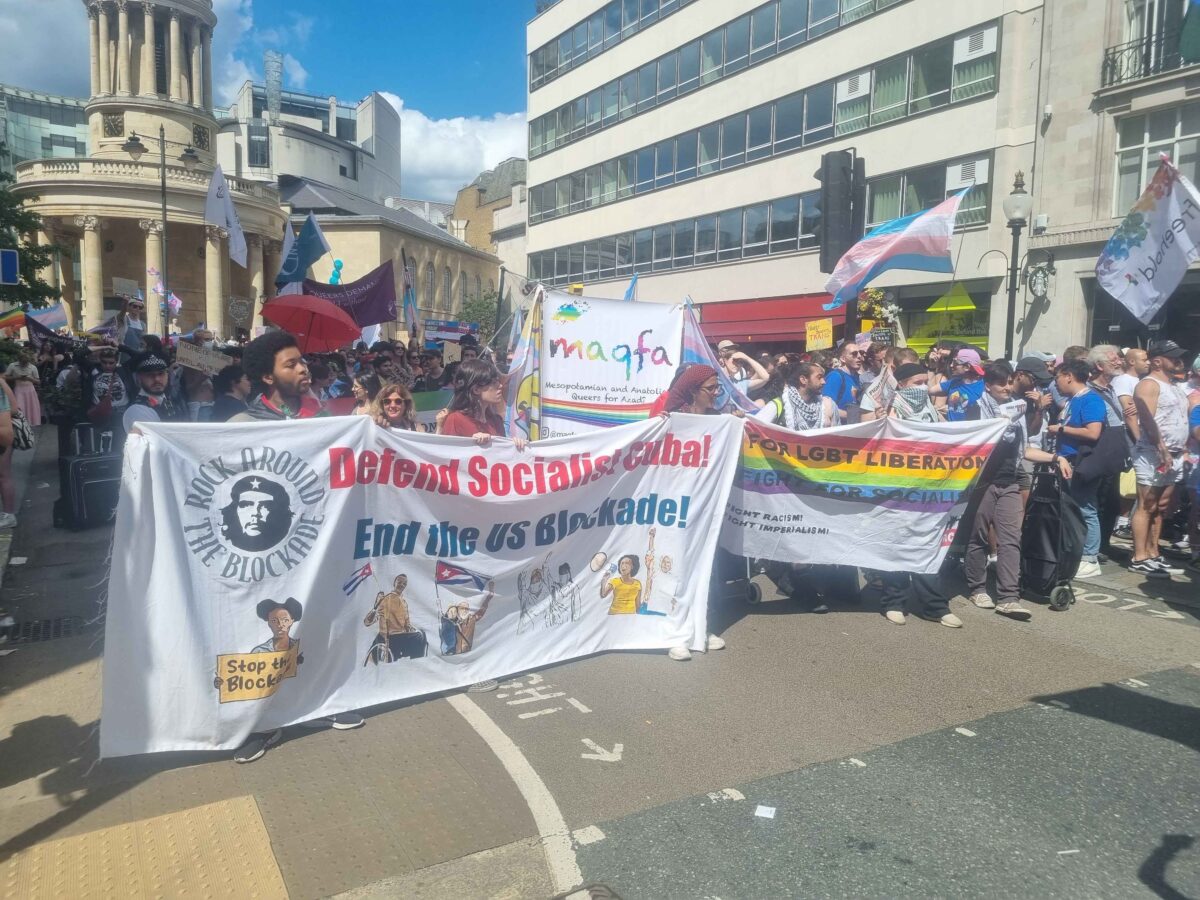
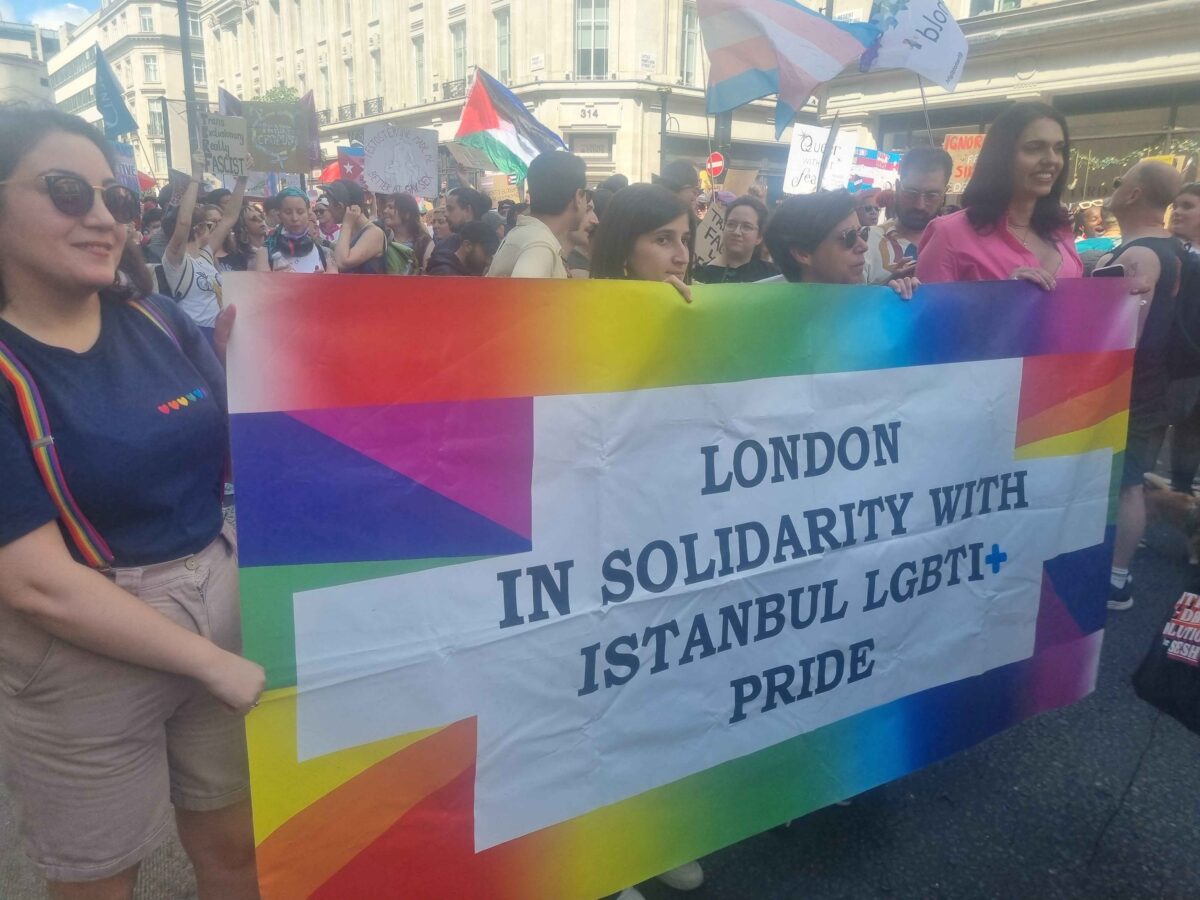
This includes multiple assaults on the street without periods in which to recover psychologically. It means having my healthcare threatened when seeking mental health services that nonetheless catastrophically fail to address my needs. It means being left in a violent cycle of crises that endanger my life. And I do not write on this for pity; I am by no means among the more vulnerable.
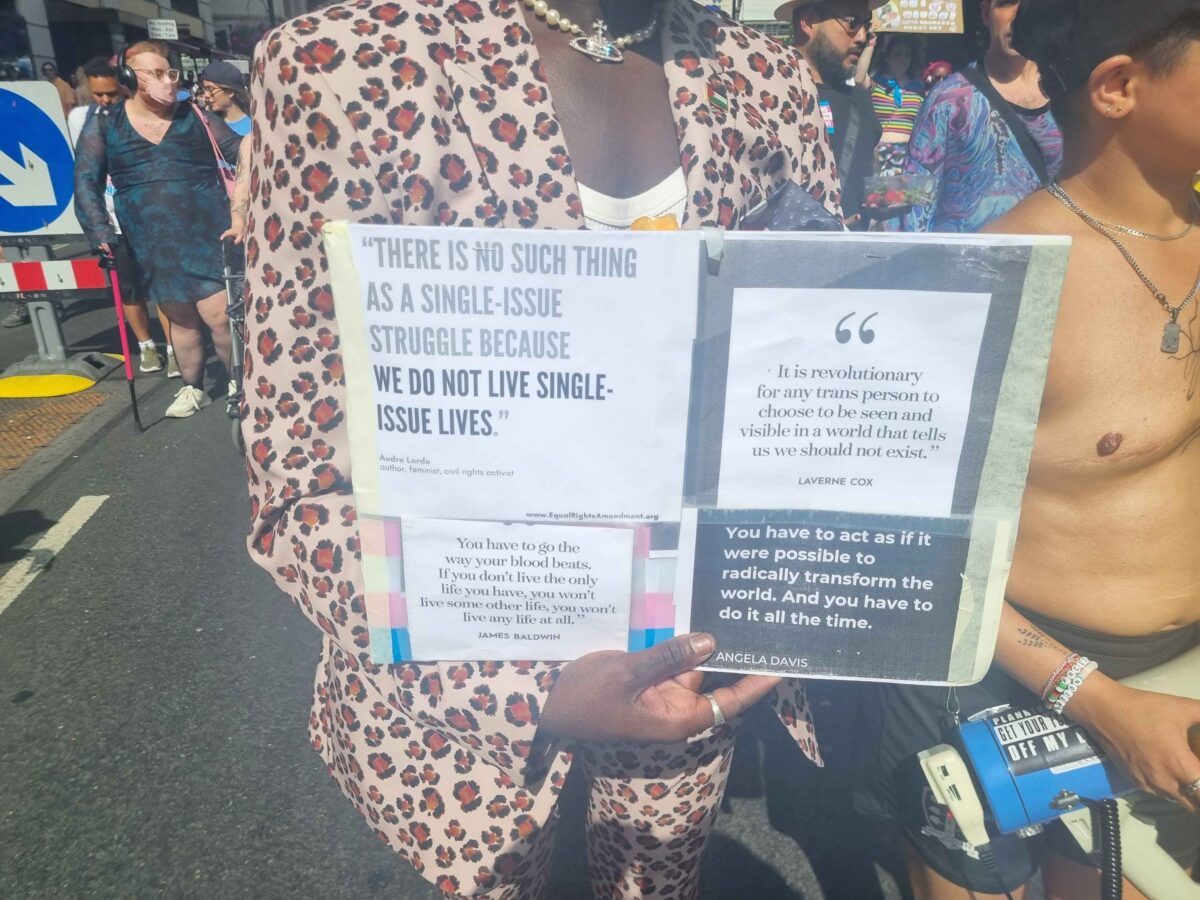
When you become involved in the community, you will inevitably encounter deaths, including of the young. You will see forms of personal desperation you could not previously have imagined. You will see the two-faced cruelty of a system that pretends to exist for your benefit and that denies your oppression as it simultaneously guarantees it. There are forms of weariness and grief that are hard to communicate to the uninitiated.
The need for change that is summoned into life at London Trans+ Pride is powerfully felt by every trans person except the most obscenely well-off and protected. It is a class struggle. It is also one that gets at the heart of the feminist goal to abolish the oppressive system of domination realised in the form of the post-industrial atomised family unit as a tool of patriarchal hegemony.
“The need for change that is summoned into life at London Trans+ Pride is powerfully felt by every trans person except the most obscenely well-off and protected. It is a class struggle. It is also one that gets at the heart of the feminist goal to abolish the oppressive system of domination realised in the form of the post-industrial atomised family unit as a tool of patriarchal hegemony.”
Fighting Despair
One A*CR member marching with the UNITE LGBT committee noted that the union contigent itself was overwhelmingly queer, observing the need to deepen this form of solidarity within the union movement. Nonetheless, he was encouraged by the substantial union presence, including members of the union leadership.
However, to develop these links, the organisers of London Trans+ Pride should be more welcoming to speakers from the labour movement. At the final rally, offered speakers from UNISON were not agreed to, and at a time when such support is critical, this was a myopic choice that impedes vital solidarity.
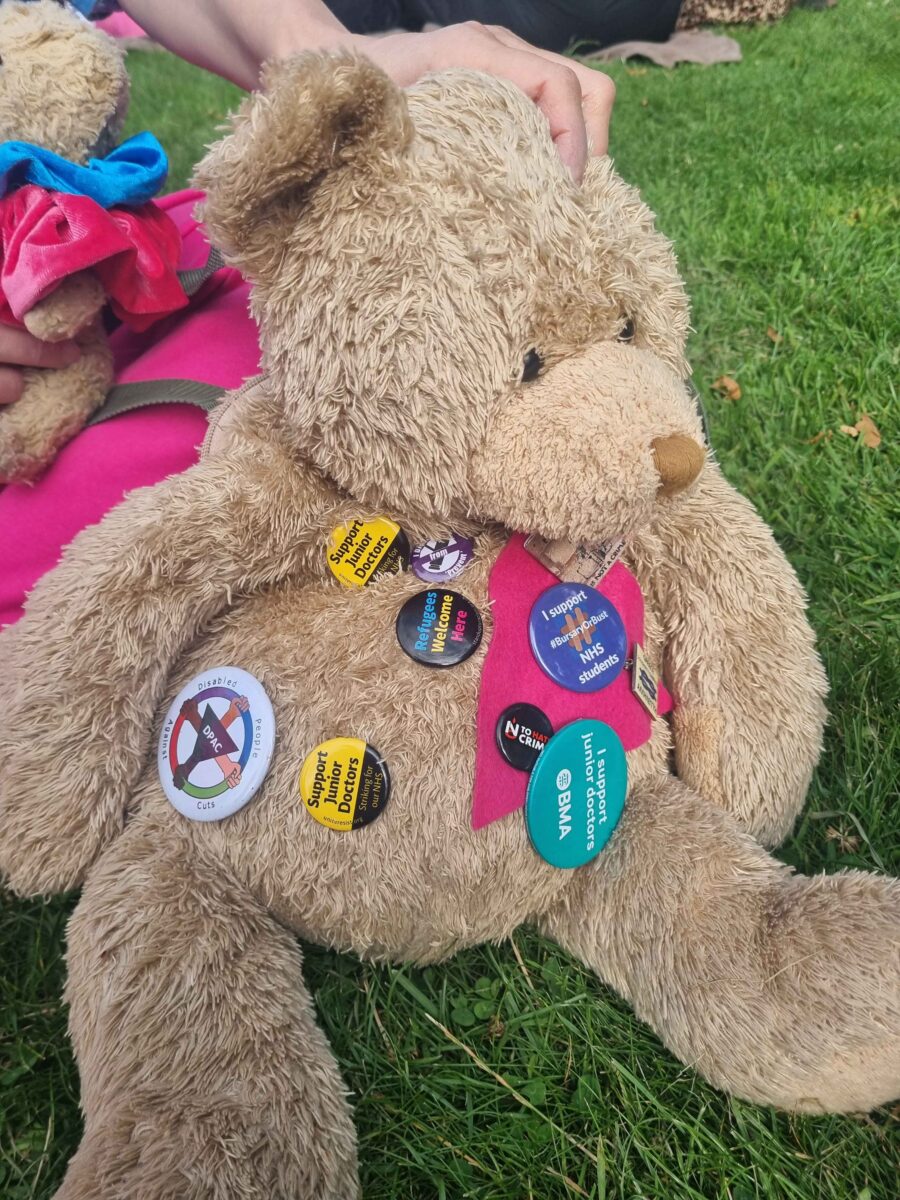
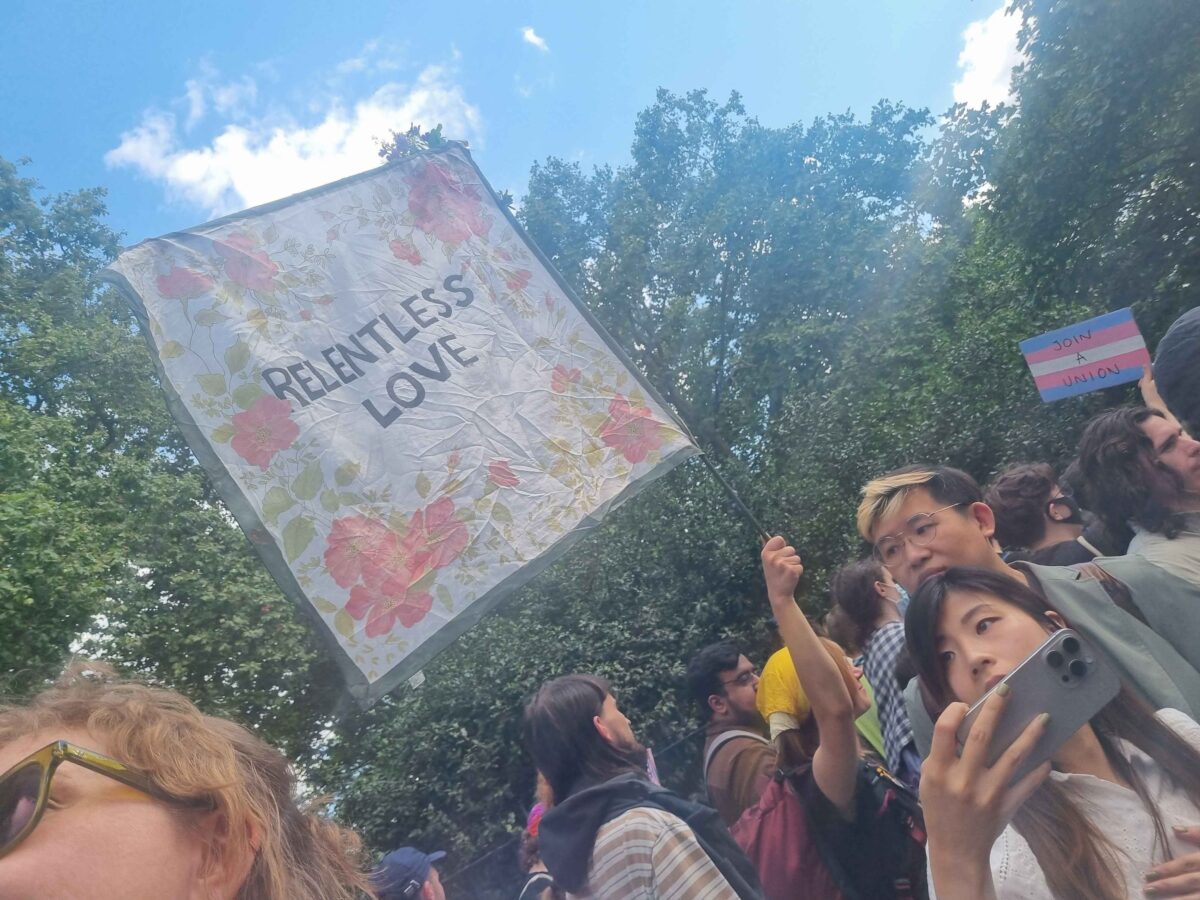
The British media has a clear informal (or secret) policy to ignore or relegate trans pride. Where coverage appears, it is usually niche (Dazed Digital, Attitude, PinkNews). The Indie is a rare exception but lacks the weight it once had. Especially insulting was the BBC sidelining trans pride to a mention in a piece that centred Tommy Robinson’s far-right hate march, but the Beeb has long preferred platforming fascists and transphobes over stories of trans flourishing.
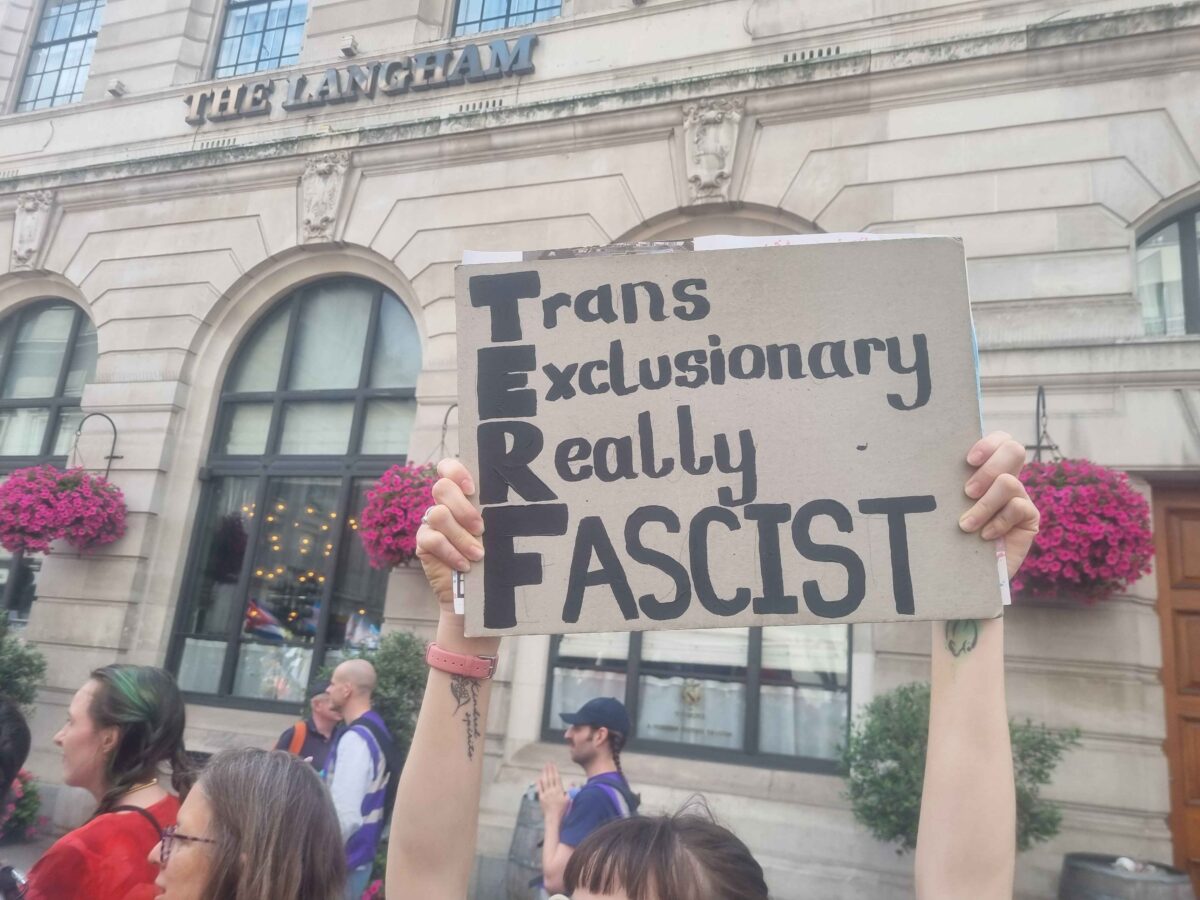
Still, this is also an arena in which trans resistance should not be passive. Lesbian activists in the late 80s, protesting the original section 28, took the step of invading BBC news studios live on air. Demos against the British media about their systemic anti-trans views have been generally muted and small, and while placards can always be seen condemning (especially) the BBC and Guardian for their transphobic editorial lines, this needs to be developed.
When liaising with contacts, friends and trans siblings, it was clear to me just how monstrously difficult efforts at community care have become. Exhaustion and depletion are now widespread, with many critical nodes of vital support retreating to sustain themselves through hardships and traumas. Pressures grow, but new structures of endurance and organisational sustenance must match the pace of the challenge.
This overall picture meant a strange cognitive dissonance to the proceedings—the external presentation of renewed militancy jars with the scale of the sense of defeat and anguish. Indignation is the appearance, but unfortunately, resigned horror is the essence. The numbers might correctly persuade us that we will ultimately win, but the lateness of this response lends itself to a morbid sense that the price of that victory will be unimaginably and unforgivably high. Even more so than it has been.
“This overall picture meant a strange cognitive dissonance to the proceedings—the external presentation of renewed militancy jars with the scale of the sense of defeat and anguish. Indignation is the appearance, but unfortunately, resigned horror is the essence.”
Art (54) Book Review (127) Books (114) Capitalism (67) China (81) Climate Emergency (99) Conservative Government (90) Conservative Party (45) COVID-19 (45) EcoSocialism (60) Elections (83) Europe (46) Fascism (62) Film (48) Film Review (68) France (72) Gaza (62) Imperialism (100) Israel (129) Italy (46) Keir Starmer (56) Labour Party (113) Long Read (42) Marxism (49) Marxist Theory (47) Palestine (181) pandemic (78) Protest (153) Russia (343) Solidarity (149) Statement (49) Trade Unionism (144) Ukraine (351) United States of America (136) War (370)

